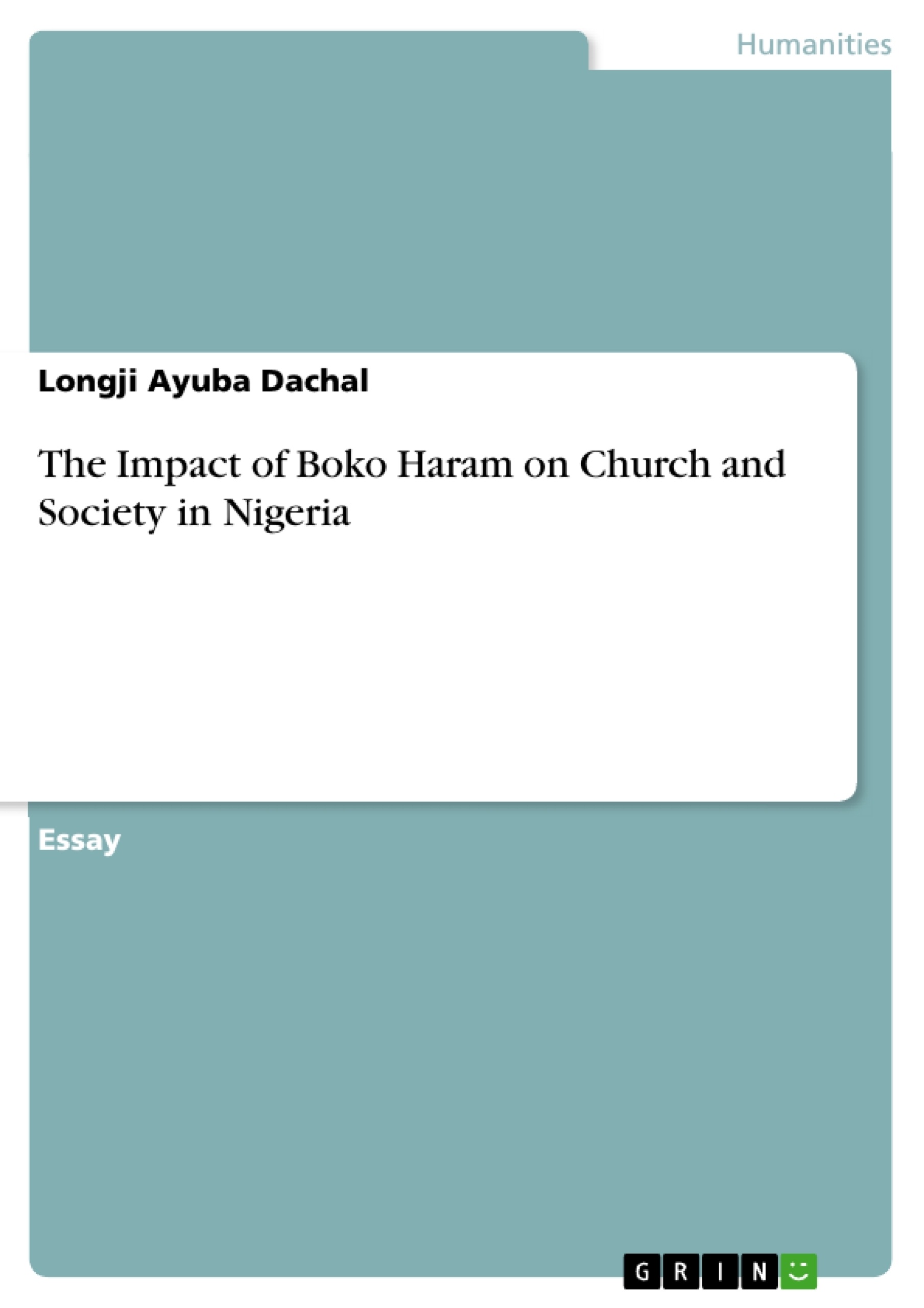The activities of the Boko Haram sects in Nigeria have negatively affected the Nigerian society. The socio-economic, political and religious aspects of the Nigerian society have a lot due to the activities of the Boko Haram sects especially in the northern parts of Nigeria. The Bishop of Kaduna Diocese of the Church of Nigeria, Anglican Communion, Reverend Josiah Idowu-Fearon, observed that violence and insurgency has destroyed the economic, social and religious lives of the people of Kaduna State. This can also be said of all the Boko Haram stricken states in northern Nigeria. He pointed out that "The entire North-east of the country, Jos and Kano are almost completely isolated economically, socially and politically…"
This essay outlines and discusses some of the impacts of the Boko Haram sects on both the Church and the society in Nigeria.
Inhaltsverzeichnis (Table of Contents)
- Introduction
- The Social Impact of Boko Haram on the Church and Society
- The Political Impact of Boko Haram on the Church and Society
- The Religious Impact of Boko Haram on the Church and Society
- Economic Impact of Boko Haram on the Church and Society
- Conclusion
Zielsetzung und Themenschwerpunkte (Objectives and Key Themes)
This essay explores the multifaceted impact of the Boko Haram insurgency on the Church and society in Nigeria. It examines how the activities of the sect have significantly affected various aspects of life, including social, political, religious, and economic spheres.
- The social and economic consequences of Boko Haram's activities on the Church and the wider Nigerian society.
- The disruption of social gatherings, educational institutions, and economic activity in Boko Haram-affected areas.
- The political impact of Boko Haram, including security challenges, limitations on freedom of movement, and the rise of other terrorist groups.
- The impact of Boko Haram on the Nigerian government's ability to deliver services and maintain security.
Zusammenfassung der Kapitel (Chapter Summaries)
- Introduction: This section introduces the topic by highlighting the significant negative impact of Boko Haram's activities on Nigerian society, particularly in the northern regions. It also provides context for the essay's exploration of the insurgency's impact on both the Church and the society.
- The Social Impact of Boko Haram on the Church and Society: This chapter focuses on the social consequences of Boko Haram's actions. It discusses the disruption of social life, the decline in education due to school closures and attacks, and the displacement of populations. It also highlights the rise in widows, orphans, and traumatized survivors.
- The Political Impact of Boko Haram on the Church and Society: This chapter examines the political impact of Boko Haram, emphasizing the security challenges it poses to Nigeria. It discusses the limitations on freedom of movement and the emergence of other terrorist groups operating in the name of Boko Haram. It also explores the strain on government resources due to security measures and the challenges faced by political leaders in fulfilling their promises.
Schlüsselwörter (Keywords)
Boko Haram, insurgency, Nigeria, Church, society, social impact, political impact, religious impact, economic impact, security challenges, freedom of movement, displacement, education, terrorism, government, Joint Task Force (JTF), dividends of democracy.
- Quote paper
- Longji Ayuba Dachal (Author), 2015, The Impact of Boko Haram on Church and Society in Nigeria, Munich, GRIN Verlag, https://www.grin.com/document/388005




